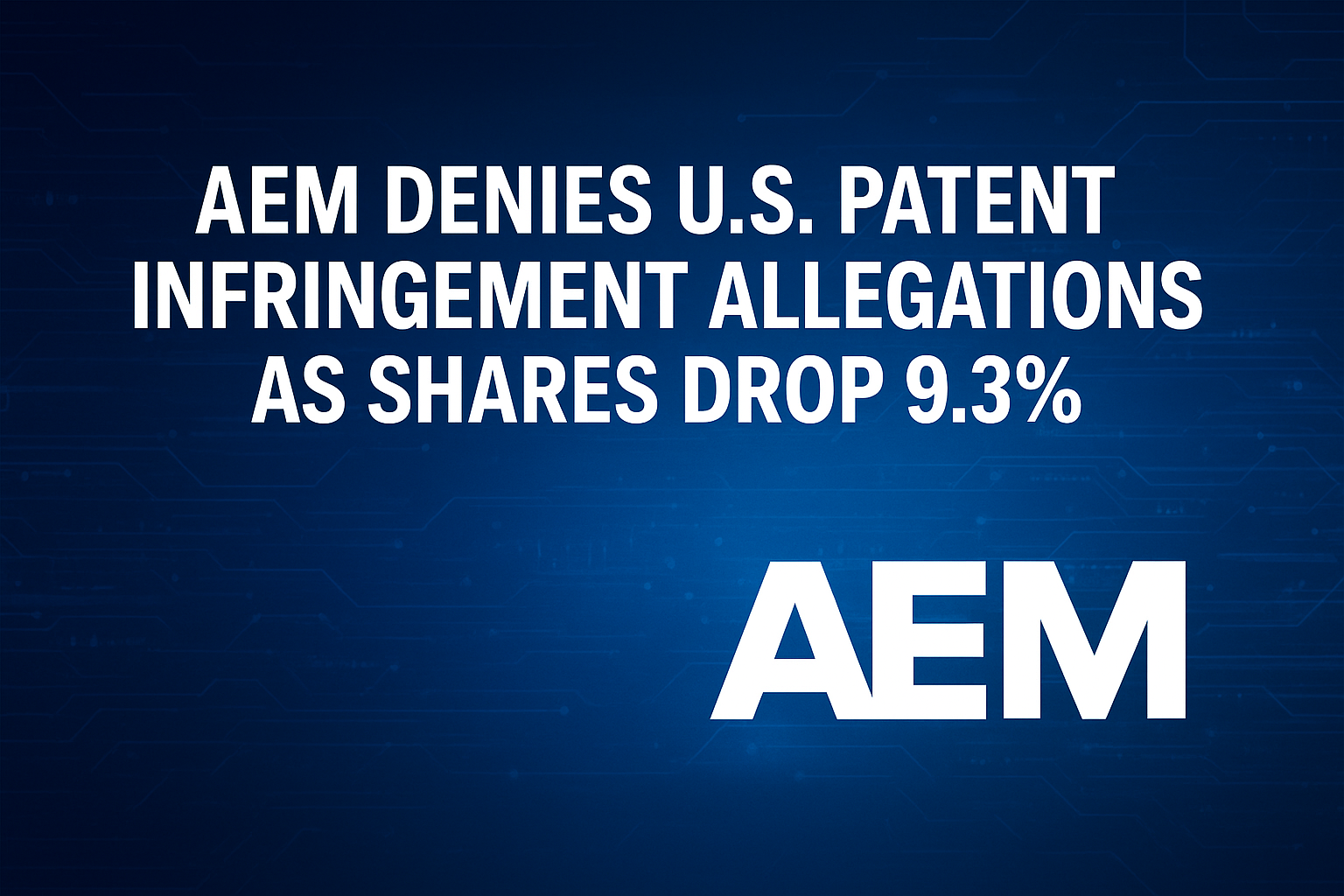Singapore-based AEM Holdings Ltd has strongly denied allegations of patent infringement filed by a U.S. semiconductor company. The complaint, lodged in the U.S. District Court for the Southern District of California, accuses AEM of infringing patents related to advanced wafer-level testing systems.
The lawsuit reportedly focuses on patents covering wafer test systems equipped with thermal control technologies. The U.S. firm alleges that AEM’s testing solutions use similar methods without authorization.
AEM dismissed the claims, describing them as baseless and lacking merit. The company stated that it operates within international intellectual property laws and owns a strong portfolio of patents supporting its innovations.
“AEM strongly denies these allegations and believes the lawsuit lacks merit. We are confident this matter will not have a material impact on our operations,” the company said in an official SGX filing.
Sharp Decline in Share Value
Following the announcement, AEM’s stock fell by 9.3% on Tuesday as investors reacted to the legal development. The decline reflected market concerns over potential litigation costs, possible injunctions, and uncertainty surrounding the dispute’s outcome.
Analysts note that patent lawsuits in the semiconductor industry can take years to resolve and often involve high legal expenses. Even if a company ultimately prevails, the process can temporarily affect investor confidence and market performance.
This legal challenge comes at a time when global semiconductor manufacturers are ramping up innovation in testing and automation systems to meet rising chip demand. Intellectual property protection has therefore become a key competitive factor for industry players.
Implications for the Semiconductor Sector
The case highlights the growing frequency of intellectual property disputes within the semiconductor sector. As companies push the boundaries of chip testing and design technology, patent overlaps and legal confrontations have become more common.
If the court rules against AEM, it may face monetary penalties, licensing obligations, or the need to redesign affected products. However, if the company successfully defends itself, it could reaffirm the strength of its technology portfolio and restore market confidence.
Industry experts often observe that such disputes eventually lead to settlements or cross-licensing arrangements, allowing both parties to move forward without long-term disruptions.
AEM’s Response and Future Outlook
AEM confirmed that it has engaged legal counsel in the United States and intends to vigorously defend its position. The company reiterated that the case would not affect its business operations or financial performance.
AEM continues to expand its global presence in semiconductor test solutions, automation systems, and equipment engineering. The firm maintains that its technologies are independently developed and compliant with all applicable IP regulations.
The coming months will be crucial as AEM presents its defense and the court reviews the claims. The outcome will likely shape how technology companies manage and safeguard intellectual property in an increasingly competitive semiconductor landscape.

